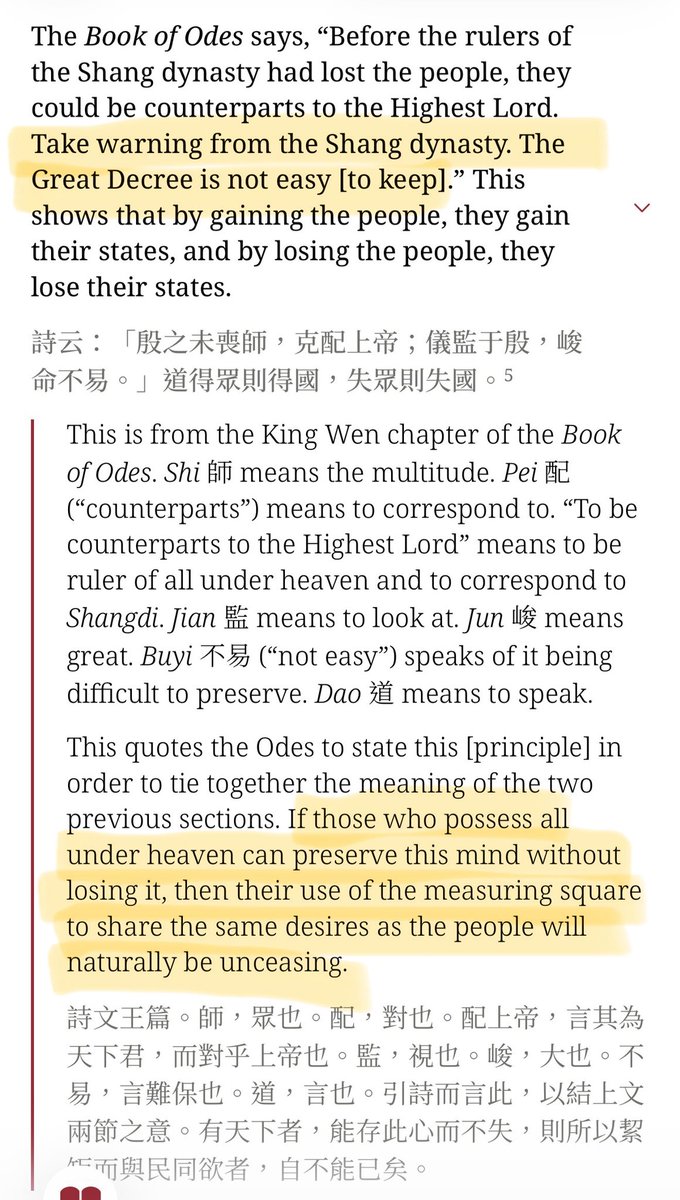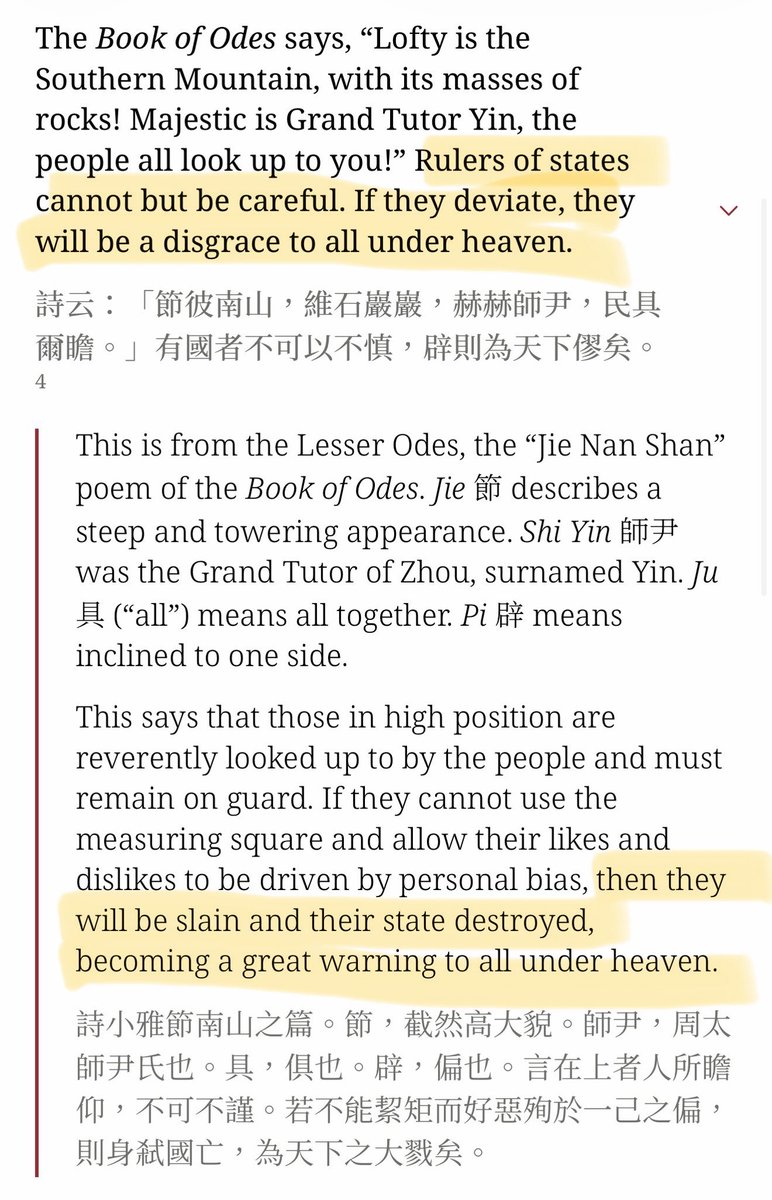We need to differentiate between the “communist” Chinese government (which is conservative, pragmatic, realistic)...
...and Western Marxists (which are hyper-progressivist, idealistic, post-reality).
Not the same. Almost opposites? #RectificationOfNames
...and Western Marxists (which are hyper-progressivist, idealistic, post-reality).
Not the same. Almost opposites? #RectificationOfNames
2/ The Western left/right love to conflate these...
The far left treat China as their holy grail of leftism, while the Breitbart goons decry "leftist China."
But China is NOT the West, and does not map to Western thought (ideologies).
The far left treat China as their holy grail of leftism, while the Breitbart goons decry "leftist China."
But China is NOT the West, and does not map to Western thought (ideologies).
3/ Conservatism, pragmatism, and a deep grounding in reality is foundational to the Chinese thought lineage beginning w/ the Dao De Jing. It then becomes hyper-pragmatic, hundreds of years later, with Han Fei's Legalism.
This contrasts starkly with idealistic Western leftism...
This contrasts starkly with idealistic Western leftism...
4/ Ex 1: Reality-based.
The Dao De Jing established the most fundamental; reality exists (nature), and we are inseparable from that reality. CPC is realistic.
But Western leftism (with postmodernism) has gone so far as to say reality can not be objectively known. Opposites!
The Dao De Jing established the most fundamental; reality exists (nature), and we are inseparable from that reality. CPC is realistic.
But Western leftism (with postmodernism) has gone so far as to say reality can not be objectively known. Opposites!
5/ Ex2: Conservative (cautious).
The sage moves forward cautiously, testing each step, as if crossing a frozen river (DDJ). You can see this is in the CPC's operations.
But Western progressivists charge forward blindly without thinking or testing. And fail, and over over again.
The sage moves forward cautiously, testing each step, as if crossing a frozen river (DDJ). You can see this is in the CPC's operations.
But Western progressivists charge forward blindly without thinking or testing. And fail, and over over again.
6/ Ex3: Non-idealistic.
From Legalism thousands of years ago, to Mao and Deng, China is more about pragmatism. Results instruct us on how things work, not ideology.
But Western Marxists/PoMo are all about their precious ideology. They sacrifice people, and results, for ideas.
From Legalism thousands of years ago, to Mao and Deng, China is more about pragmatism. Results instruct us on how things work, not ideology.
But Western Marxists/PoMo are all about their precious ideology. They sacrifice people, and results, for ideas.
7/ Ex4: Values.
East Asia has conservative values. Korea and Japan for sure. China is a big place, Shanghai is more liberal, but overall values community, family, elders, respect.
But Western lefties are individualists, have poor family relations, and zero respect for anyone.
East Asia has conservative values. Korea and Japan for sure. China is a big place, Shanghai is more liberal, but overall values community, family, elders, respect.
But Western lefties are individualists, have poor family relations, and zero respect for anyone.
8/ In conclusion, Western thought simply does not map to East Asia. The moment China took Marxism and capitalism, and started tinkering with them, they started becoming CHINESE.
To understand, we have to think about China thru Chinese thought, not Western thought. 💡 (8/8)
To understand, we have to think about China thru Chinese thought, not Western thought. 💡 (8/8)
Update: Tom making a similar point...
“...the bizarre appropriation of communist states as a vehicle for identity politics and social justice goals in Western countries.”
These weird Western ideologies/cults belong in the declining West, they have nothing to do with China.
“...the bizarre appropriation of communist states as a vehicle for identity politics and social justice goals in Western countries.”
These weird Western ideologies/cults belong in the declining West, they have nothing to do with China.
https://twitter.com/carlzha/status/1304379873096396800
• • •
Missing some Tweet in this thread? You can try to
force a refresh










